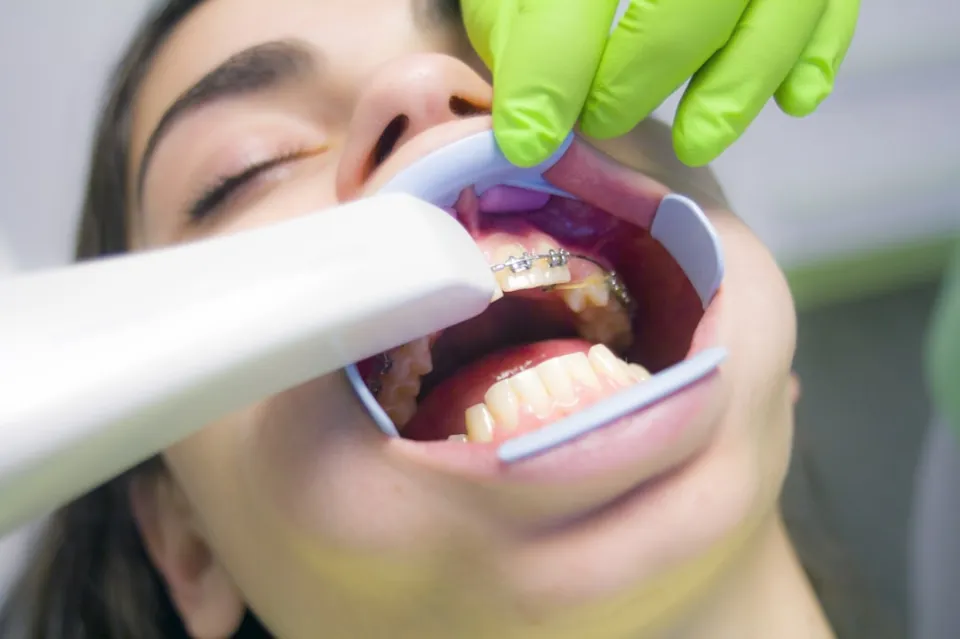
How Long Does It Take To Whiten My Teeth – Unveiling the Timeline
Many people aspire to have a radiant smile that exudes confidence. If you’re thinking about getting teeth whitening treatments, you might be curious how long it will take to see results.
The timeline of the teeth-whitening process will be revealed as we travel through the world of this procedure in this article. The various elements that affect how quickly your teeth can be whitened will be covered, along with various techniques like professional and at-home options.
Join us as we explore the world of teeth whitening if you want to learn how long it takes to achieve a brilliant smile.
How Long Will a Tooth Whitening Procedure Take?

The amount of time required for the procedure depends on the brand of whitener that is suggested for you to use as well as any habits you may have that could interfere with it. We frequently overlook the fact that these methods gradually eliminate stains as opposed to immediately. It’s best to rely on professional dental procedures that result in results that last two to three years if you want the best outcome.
By maintaining good oral hygiene practices, using specific products, and making sure to visit the dentist regularly, the effects of these procedures can be prolonged.
Here are some things you can do:
- Use the dentist-recommended whitening toothpaste and brush twice daily for two to six weeks.
- The typical turnaround time for a certified teeth-whitening mouthwash is three months. (Read More: Can I Use Mouthwash after a Tooth Extraction)
- The most effective at-home remedies that last up to six months are whitening strips.
- Although whitening pens are an option, their effects are minimal.
- An at-home teeth-whitening gel tray can be used for a week, and the results can last between two and four weeks.
- You can undergo chairside bleaching, a dental procedure that should be done with the advice of a professional, for a maximum result that lasts up to one to three.
Read More: How Often Should I Use Whitening Strips
Common Ways to Whiten Your Teeth

- Teeth whitening done professionally. This method of teeth whitening is the quickest and most effective. Patients leave with teeth that are 2-3 shades lighter than when they arrived after this quick procedure, which can take anywhere from 60 to 90 minutes.
- Whitening strips are the most commonly used method and people gravitate towards them. The best option for sensitive teeth may not always be there, though. If you choose this method, you must be very dedicated because they must be worn for 1-2 hours per day for two to three weeks.
- Whitening rinses usually is the method that takes the longest to show results. For a few minutes each day, try using the rinse.
- UV lights paired with gel are all the rage right now. The gel, which typically has a peroxide base, is meant to be applied in conjunction with a blue UV light. It is claimed that UV light activates the peroxide and quickens the whitening procedure. Within 10–14 days, with daily use, you can expect to see results.
- Whitening toothpaste contains enzymes that eliminate stains while brushing your teeth. Results may take two to six weeks if you repeat this twice daily.
Risks of Whitening Teeth

Despite the fact that the majority of people do not experience any unfavorable side effects from teeth whitening, some people experience sensitive teeth or gum sensitivity in the days after teeth whitening procedures. Additionally, pregnant women shouldn’t get their teeth whitened because the whitening agents used may harm the developing fetus.
Can I Whiten My Teeth at Home?
A significant portion of people do not mind experimenting with DIY teeth whitening products in order to save time and money. The only issue is that you might never know whether what you’re using is secure or efficient. Increased sensitivity is a common side effect of at-home teeth whitening products.
DIY teeth whitening kits don’t come close to being as effective as those used by professionals in offices, despite the fact that they can lighten your teeth by a few shades.
Will the Results Be Forever?
There is some responsibility involved in teeth bleaching. If you want to keep your teeth as white as your last session for years to come, you must adopt a proper dental care routine. Fluoride levels in drinking water that are too high, neglecting to brush your teeth frequently, and other lifestyle choices like smoking can all result in discolored teeth.

You can count on your dentist to strongly advise against drinking carbonated or colored beverages. If you do, you are strongly encouraged to brush your teeth as soon as you are finished. To prevent teeth stains, you can also swish plain water around in your mouth.
Try to cut back on your consumption of tobacco, eat more organic foods, and floss and brush your teeth at least twice per day.
Conclusion
As was already mentioned, how stained or discolored the teeth completely determine how long it will take to whiten them. Patients may only require one session in some circumstances.
Although it may take several sessions and three to four weeks to complete the treatment, it may be necessary in the event of particularly difficult stains or severe discoloration. Before estimating the length of the treatment, your dentist will evaluate the state of your teeth.





Average Rating